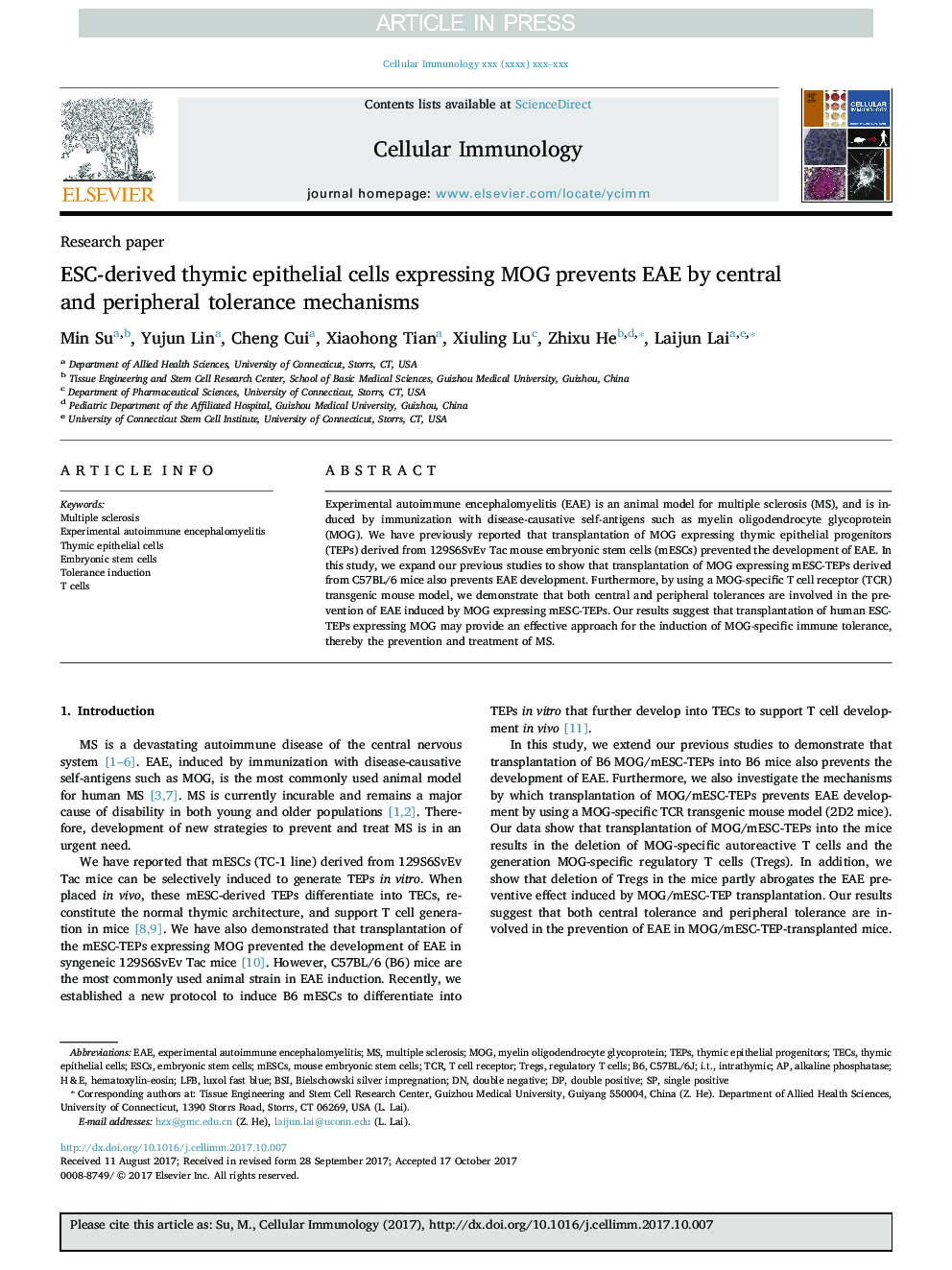| Article ID | Journal | Published Year | Pages | File Type |
|---|---|---|---|---|
| 8463627 | Cellular Immunology | 2017 | 8 Pages |
Abstract
Experimental autoimmune encephalomyelitis (EAE) is an animal model for multiple sclerosis (MS), and is induced by immunization with disease-causative self-antigens such as myelin oligodendrocyte glycoprotein (MOG). We have previously reported that transplantation of MOG expressing thymic epithelial progenitors (TEPs) derived from 129S6SvEv Tac mouse embryonic stem cells (mESCs) prevented the development of EAE. In this study, we expand our previous studies to show that transplantation of MOG expressing mESC-TEPs derived from C57BL/6 mice also prevents EAE development. Furthermore, by using a MOG-specific T cell receptor (TCR) transgenic mouse model, we demonstrate that both central and peripheral tolerances are involved in the prevention of EAE induced by MOG expressing mESC-TEPs. Our results suggest that transplantation of human ESC-TEPs expressing MOG may provide an effective approach for the induction of MOG-specific immune tolerance, thereby the prevention and treatment of MS.
Keywords
TECsMOGTEPsmESCsTCrESCsTregsBSIEAELFBLuxol Fast BlueC57BL/6JH&EAlkaline phosphataseexperimental autoimmune encephalomyelitisi.t.Tolerance inductionsingle positiveDouble negativedouble positiveThymic epithelial cellsMouse embryonic stem cellsT cellsEmbryonic stem cellsRegulatory T cellsMultiple sclerosishematoxylin-eosinmyelin oligodendrocyte glycoproteinT cell receptor
Related Topics
Life Sciences
Biochemistry, Genetics and Molecular Biology
Cell Biology
Authors
Min Su, Yujun Lin, Cheng Cui, Xiaohong Tian, Xiuling Lu, Zhixu He, Laijun Lai,
